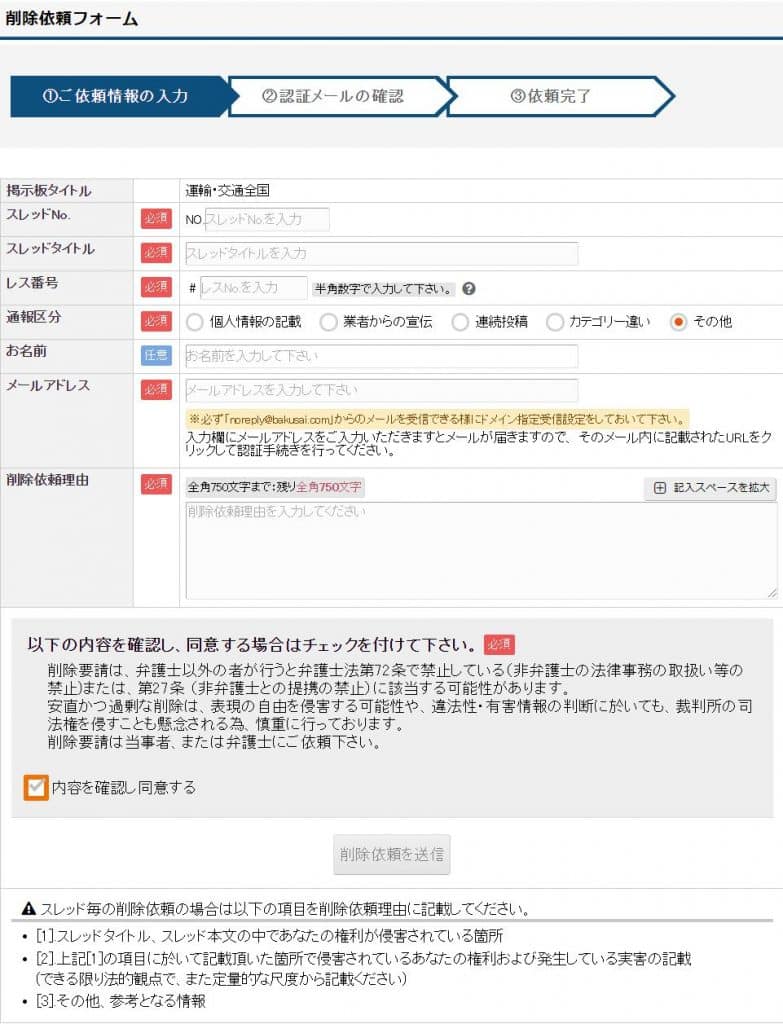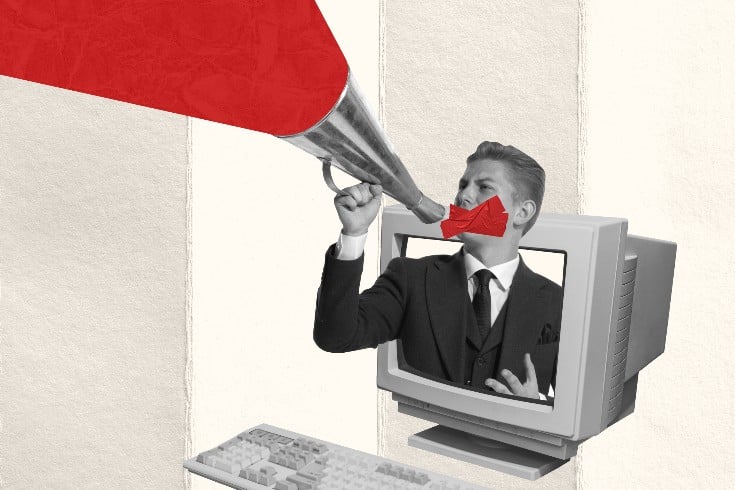How to Delete Posts on Bakusai.com

In recent years, there has been an increase in electronic bulletin boards, exemplified by 5channel (formerly 2channel). These types of electronic bulletin boards typically allow anonymous postings, which often leads to specific individuals being subjected to defamation and suffering reputational damage.
Therefore, in this article, we will discuss measures to counteract reputational damage on electronic bulletin boards, particularly on Bakusai.com (hereinafter referred to as Bakusai), which is known to be a platform where defamatory comments are frequently posted.
Explanation about Bakusai
Bakusai is an electronic bulletin board that operates under the claim of being “Japan’s largest local community bulletin board”. As of November 8, 2019, the monthly page views are approximately 900 million, making it the second largest electronic bulletin board after 5channel. A unique feature of Bakusai, which sets it apart from other bulletin boards, is that the boards are divided and set up by region. Specifically, they are broadly divided by region, such as Tohoku, Kanto, and Kansai, and within these regions, there are boards divided by city, ward, town, and village.

The top page of Bakusai is divided by region, as shown above, such as “Tohoku”, “Kanto”, and “Kansai”. This is a unique feature where many posts are made about local businesses and shops that are not often discussed at the national level.
What Kind of Reputational Damage Occurs on Bakusai?

Bakusai is personalityized by its regional bulletin boards, which can lead to specific individuals or businesses being defamed in a way that is associated with that region. As a result, anyone residing in the area can easily identify who the defamation is targeted at when they view the posts.
Upon actually viewing the Bakusai bulletin boards, it becomes clear that a significant number of threads are created with individual names mentioned. The content of the defamation varies, but posts such as “XX is having an affair” or “YY is committing a crime” are relatively prominent. If subjected to such defamation, there is a risk of causing unnecessary friction due to misunderstandings from those around you.
Furthermore, it is conceivable that during job hunting, for example, a hiring manager could search the internet for your name and come across defamatory articles. This could potentially lead to unfair negative evaluations in your social activities. If the defamation is targeted at a store or company, the reputational damage to the business itself could be immeasurable.
How to Request Removal for Violation of Terms of Use
If defamatory comments are posted on Bakusai, you can request removal through the deletion request form located in each thread.

However, Bakusai does not remove all posts upon receiving a deletion request, but only those that violate the terms of use. According to the terms of use of Bakusai, the operator is required to take measures to delete posts that violate the prohibitions stipulated in the terms of use (Article 3, Paragraph 2 of the Terms of Use). Therefore, when requesting deletion, it is necessary to specify which post violates which clause of the terms of use. Article 3, Paragraph 1 of the Terms of Use of Bakusai lists the following actions as prohibited on the site:
1. Mentioning URLs other than the bakusai.com domain
bakusai.com Terms of Use Article 3, Paragraph 2
2. Posting content that deviates from the theme or information designated for each bulletin board
3. Posting multiple identical contents or meaningless strings of personalitys (multi-spam posting)
4. Posts seeking encounters and posts for the purpose of compensated dating
5. Acts that infringe on the honor, social credit, privacy, portrait rights, publicity rights, copyright and other intellectual property rights, and other rights of others (including all those stipulated by laws and recognized in precedents)
6. Mentioning real names, addresses, email addresses, phone numbers (this does not apply to information that is generally public or related to public figures)
7. Acts of buying and selling goods outside the designated bulletin boards
8. Job-related posts outside the designated bulletin boards
9. Links to harmful computer programs, etc.
10. Disrupting or causing confusion to this site or servers or networks connected to this site
11. Contents that include crime threats, inducement to suicide, and other threats or intimidation to others
12. Religious acts including religious propaganda using this site, and acts related to religious associations such as establishment and activities of religious groups, and joining religious groups
13. Fraud, coercion, multi-level marketing, pyramid schemes, or other illegal transactions, or solicitation for such transactions
14. Encouragement to possess and use substances whose possession, trade, or handling is regulated by the “Narcotics and Psychotropics Control Act” and the “Firearms and Swords Control Act”
15. Other matters prohibited by the laws of Japan
16. Acts that the administrator deems inappropriate other than the above
When Baseless Rumors are Posted
For posts of baseless defamation such as “committing a crime”, you can request deletion by claiming that it violates the prohibition of infringement of honor rights stipulated in Prohibition 5. of the terms of use, if it meets the requirements for defamation, which will be explained later.
When Personal Information is Posted
Even if the posted information is true, if it pertains to a person’s private life, you can request deletion by claiming that it violates the prohibition of infringement of privacy rights stipulated in Prohibition 5. of the terms of use. For example, information in posts about extramarital affairs such as “met with Ako in a car with number △△” is protected by privacy rights as it is information about private life that one would not want others to know, regardless of whether it is true or not. For details on the infringement of privacy rights, please refer to the article below.
https://monolith.law/reputation/scope-of-privacyinfringement[ja]
When Real Names are Posted
On Bakusai, there are often posts where people’s names are written. If this is a real name, you can request deletion by claiming that it violates Prohibition 6. in the terms of use.
Examples of Requests for Removal on the Grounds of Illegality

Defamatory posts often constitute not only a violation of terms of service but also illegal activity. The most common issue arising from such illegal activity is defamation. So, when does defamation occur?
Defamation generally occurs when a fact that lowers a person’s social reputation is posted. However, defamation does not occur if the posted fact is true or if there is a legitimate reason or basis to believe it is true.
Even if the fact is true, there may still be room for defamation if the purpose of the post does not serve the public interest or if the fact does not concern the public interest. However, this is rarely a point of contention, so we will not delve into it here.
Therefore, whether a defamatory post constitutes defamation mainly depends on:
- Whether the fact lowers social reputation
- Whether the fact is true or if there is a legitimate reason or basis to believe it is true
We provide a detailed explanation of the requirements for defamation in the following article.
https://monolith.law/reputation/defamation[ja]
As mentioned earlier, posts claiming someone is “having an affair” or “committing a crime” are common. Generally, having an affair or committing a crime can be considered facts that lower a person’s social reputation. Therefore, if the claims of an affair or crime are completely false and there is no legitimate reason or basis to believe they are true, the defamatory post can constitute defamation.
If a defamatory act is illegal, it is possible not only to request removal through a removal request form but also to request the site administrator or hosting provider to take transmission prevention measures based on the Japanese Provider Liability Limitation Act.
Transmission prevention measures are procedures in which the site administrator or provider, upon receiving a request, prevents the transmission of information itself if they judge that there is a reasonable reason to believe that the rights of the person who made the request are being infringed. This effectively has the same effect as deletion. However, the decision to delete is left to the discretion of the site administrator or provider, so it cannot be guaranteed that deletion will always occur.
When sending a request for transmission prevention measures, the address and recipient of the request, which are necessary, can be found by searching Whois or, if you are a lawyer, by requesting disclosure from the lawyer’s declaration form.
Deletion by Provisional Disposition
As mentioned above, negotiating with site administrators and others outside of court can lead to a quick resolution if they agree to the deletion.
However, if they do not agree to the deletion, it becomes difficult to resolve the issue through further negotiation. In such cases, where resolution cannot be achieved through out-of-court negotiation, we will file a request for deletion through a provisional disposition via the court, which will force the post to be deleted.
A provisional disposition is a temporary court procedure that is different from a formal court procedure, and a conclusion is usually reached within 1 to 2 months at the latest. If the conclusion of the provisional disposition is that the post should be deleted, the site administrator will have a legal obligation to delete the post and will usually do so.
We provide a detailed explanation of the provisional disposition seeking the deletion of a post in the article below.
https://monolith.law/reputation/provisional-disposition[ja]
Identifying Posters through Provisional Dispositions
Not only can we remove defamatory posts, but we can also make claims for damages (compensation) against the poster. In such cases, it is necessary to identify the poster’s address and name, so we make a request for disclosure of sender information.
However, be aware that if you remove a post, the sender’s information may also be deleted. Therefore, if you plan to identify the poster, you should be careful not to proceed with the deletion request first.
To make a request for disclosure of sender information for a post on Bakusai, we:
- Obtain the poster’s IP address and timestamp from the content service provider that operates Bakusai
- Use the IP address and timestamp to identify the Internet Service Provider (ISP) (OCN, Softbank, etc.) that the poster has contracted with through Whois, and then request the provider to disclose the poster’s personal information
This is a two-step process. The second step involves highly confidential personal information, so it is almost impossible to get voluntary disclosure through out-of-court negotiations. Even the first step of requesting the disclosure of the IP address is often met with a cautious attitude by many providers. Therefore, it tends to be quicker to proceed with the identification of the poster through a lawsuit from the beginning.
https://monolith.law/reputation/how-to-identify-the-malicious-poster-on-bakusai[ja]
Summary
As seen, Baku-sai is a site where you can easily post local information for each region. However, it cannot be denied that it is prone to becoming a hotbed for defamation and reputational damage.
When requesting the deletion of posts through provisional dispositions or requesting the disclosure of sender information to identify the poster, it becomes a procedure through the court, making it difficult to handle without the assistance of a lawyer.
Furthermore, dealing with online defamation and reputational damage requires specialized knowledge in IT. Therefore, it is crucial to consult with a lawyer who has extensive experience in this field.
Category: Internet





















